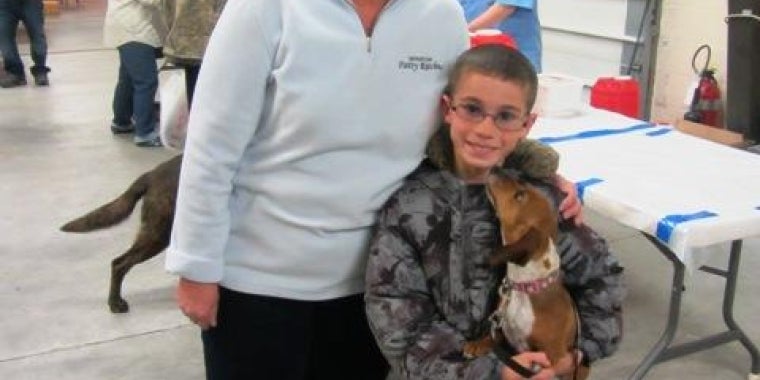
Ritchie Announces Funding to Fight Rabies
Patty Ritchie
April 28, 2014
-
ISSUE:
- Agriculture
- Health

First North Country Case of 2014 Reported
In light of the first rabies case for 2014 being confirmed last week in St. Lawrence County, State Senator Patty Ritchie has announced she has secured $25,000 in State Budget funding to help fight the disease in the North Country.
CLICK HERE FOR DATES OF FREE ST. LAWRENCE CO. CLINICS
“For me, my dog is a part of the family, and I know that’s the case for almost anyone who has a pet,” said Senator Ritchie. “I’m pleased to be able to provide this funding which will not only go a long way to protect pets in our region from this deadly disease but also will heighten awareness and send a message that we need to be vigilant in protecting ourselves—and our loved ones—from rabies.”
The funding will be used to hold no-cost rabies vaccination clinics throughout Jefferson and St. Lawrence Counties. Locations and times for St. Lawrence County events can be found here. Dates for Jefferson County clinics are forthcoming.
Senator Ritchie’s series of free rabies clinics are only her latest effort in fight against the disease, which there were nearly 40 confirmed cases of in Jefferson and St. Lawrence Counties in 2013.
In response to an alarming increase in the number of wildlife rabies cases reported, Senator Ritchie hosted six no-cost vaccination clinics throughout Jefferson and St. Lawrence County where nearly 1,000 pets were vaccinated.
In addition, as Chair of the New York State Senate Agriculture Committee, Senator Ritchie was instrumental in recent years in stopping a half-million dollars in proposed funding cuts to rabies prevention programs, including an innovative North Country program run by Cornell University that uses special “baits” to inoculate potentially disease-spreading wildlife so they won’t be infected and pose a risk to the public. The newly enacted State Budget includes $510,000 for the program statewide.
According to the CDC, rabies is a dangerous virus that is transmitted through the saliva of animals. Anyone can contract the virus if they handle or get bitten by the animal that has the disease. More than 90 percent of all rabid animals reported to the CDC each year occur in wildlife. The main animals that get rabies include raccoons, skunks, foxes and bats. However, most people are exposed to rabies due to close contact with domestic animals such as cats and dogs.
To protect yourself from rabies, health officials encourage individuals to take the following steps:
· Stay away from wild animals, especially when they are behaving strangely—and keep your pets away too;
· Teach your children about rabies, so they understand the risks;
· Make sure your pets’ rabies vaccinations are always up to date;
· Don’t attract wild animals to your home or yard. You can do so by keeping your property free of stored bird seed or other foods that might attract wild animals. It’s also a good idea to tightly cap or put away garbage cans, board up openings in your attic, basement, porch or garage and cap your chimney with screens; and
· Report all animal bites or contact with wild animals to your local health department



